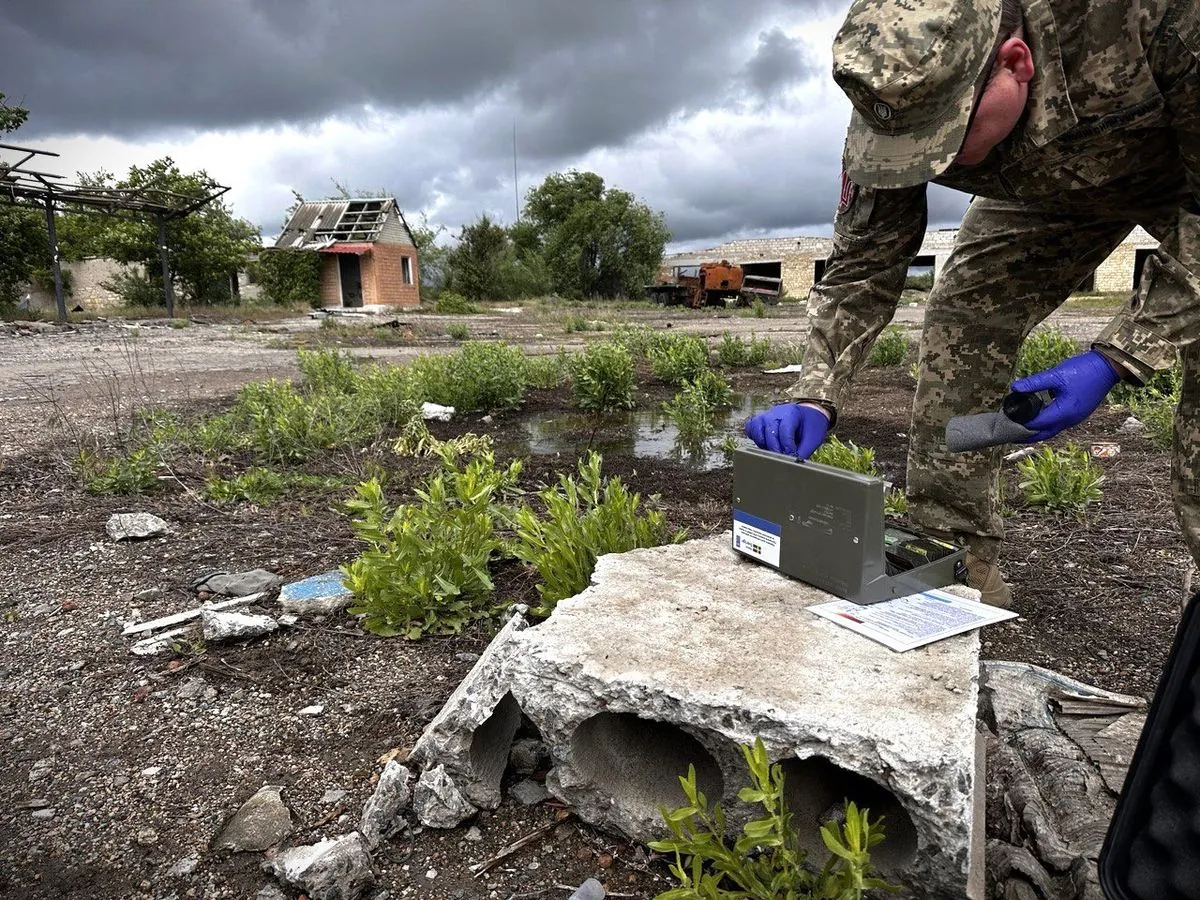Environmentalists find heavy metals and pesticides in soil in the de-occupied territories of Mykolaiv region
Kyiv • UNN
In the de-occupied territories of Mykolaiv region, an increased content of heavy metals and explosive residues in the soil was found. The contamination is the result of Russian shelling of enterprises and warehouses.

Military ecologists have found an increased content of heavy metals and explosive residues in the soils in the de-occupied territories of Mykolaiv region. This was reported by UNN with reference to the Ministry of Defense.
Details
Specialists from the Center of Excellence for Mine Action and Environmental Safety examined the areas of Snihurivka and Shevchenkove village, taking samples of soil, silt and water from the Ingulets River. In particular, they foun
- arsenic;
- lead;
- copper;
- zinc.
It is noted that the pollution found is the result of missile and artillery strikes by the Russian army on enterprises, warehouses with agrochemicals and fuel. Significant damage to the soil cover requires large-scale land reclamation.
The Ministry of Defense noted that the research will help restore the affected areas and return them to economic use, as well as restore natural ecosystems, including especially valuable lands of the nature reserve fund.

To recap
All environmental crimes committed by Russia on the territory of Ukraine during the full-scale invasion are carefully documented in order to be properly assessed in international courts. Earlier, experts from Kyiv Scientific Research Institute of Forensic Expertise told UNN about the main consequences of of the Russian Federation.
According to them, since the beginning of the full-scale war, numerous facts of deliberate anthropogenic impact of the enemy on the ecology and environment have been recorded. In this context, engineering and environmental expertise is one of the key tools in the process of bringing those responsible to justice and analyzing the scale of the impact of military events on the environment.
Experts add that each fire caused by rocket attacks, destruction of flora and fauna, and pollution of water bodies have long-term consequences. This includes irreversible changes in ecosystems, soil degradation, the extinction of certain species of plants and animals, as well as air and water pollution, which affects human health and the overall sustainability of the environment.